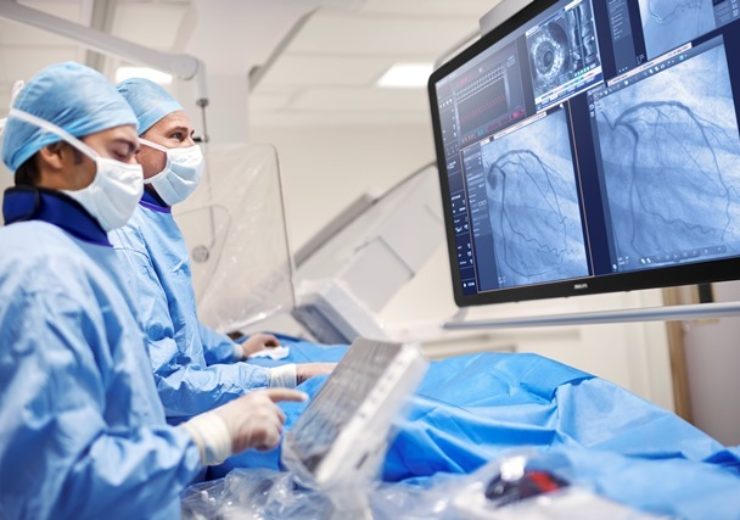Azurion offers a unique operating system that optimizes integration and an intuitive user interface that puts controls at the clinician’s fingertips

Image: Philips and Regional Medical Center have announced long-term strategic partnership to innovate patient care for residents of rural South Carolina. Photo: courtesy of Koninklijke Philips N.V.
Royal Philips, a global leader in health technology, and the Regional Medical Center (RMC), today announced a strategic 5-year partnership agreement worth $16m to deliver innovative diagnostic imaging solutions for the residents of rural Orangeburg, Calhoun, Bamberg and Barnwell counties in South Carolina, United States.
The partnership will also support the expansion of the region’s only stand-alone community hospital, help RMC to standardize its imaging platforms and better integrate workflows and information, allowing for a better view of the patient. As a result, RMC will be better equipped to deliver on the Quadruple Aim: better outcomes, increased efficiency and improved patient and staff experience.
An hour outside of Charleston and 45 minutes from Columbia, RMC is the only acute care provider in the area, serving patients across a roughly 2,400-square-mile region of South Carolina. The healthcare system includes a 286-bed acute care hospital (designated as a Level III Trauma Center), and 24 primary and specialty care practices in Orangeburg, Calhoun, Bamberg and Barnwell counties. Regional Medical Center recently completed construction of a new USD 8.6 million emergency care facility in the city of Denmark in South Carolina.
The 20,500-square-foot RMC Bamberg/Barnwell Emergency Medical Center provides round-the-clock emergency care, including diagnostic imaging, laboratory, observation and emergency transport services.
Long-term strategic partnerships (LSPs) are a growing trend used within hospitals and health systems to better manage the cost and complexity of their technology investments over a defined period of time, while expanding quality access to advanced medical care in order to improve patient outcomes.
Philips is a leader in LSPs and the partnership will provide RMC with access to the latest diagnostic imaging solutions, such as the helium-free Ingenia Ambition X system, which can help improve first-time- right diagnosis and perform faster exams. Moreover, RMC will have access to industry-leading minimally invasive solutions such as the Philips Azurion image-guided therapy platform. Azurion offers a unique operating system that optimizes integration and an intuitive user interface that puts controls at the clinician’s fingertips.
“Delivering truly outstanding care requires our clinical teams to be at the forefront of the latest developments in medicine. Partnering with a health tech leader like Philips ensures our early and ongoing access to leading-edge solutions that can help us deliver the high quality care our communities deserve,” said Charles Williams, President and CEO of Regional Medical Center. “Having access to quality imaging solutions is key to getting to a faster diagnosis and treatment, which will enable us to continue to expand care and ultimately improve patient outcomes.”
Through Philips Medical Capital’s flexible finance plan, long-term strategic partnerships also provide a predictable and stable financial model, while helping take the guesswork out of technology adoption. Its partnership with Philips will allow RMC to not only offer state-of-the-art technology and standardize its diagnostic imaging, but also better integrate imaging data, allowing clinicians to get access to the right patient data for better diagnosis and treatment.
“At Philips, we understand that delivering on the Quadruple Aim is a challenge for all health systems, regardless of size or location,” said Vitor Rocha, Chief Market Leader of Philips North America. “With 1 in 5 Americans living in rural areas, it is important that we work with health systems like Regional Medical Center to bring innovative care closer to home for the communities they serve. Together, we can ensure that patients in more rural counties get the same access to quality care as their big city neighbors.”
Source: Company Press Release
